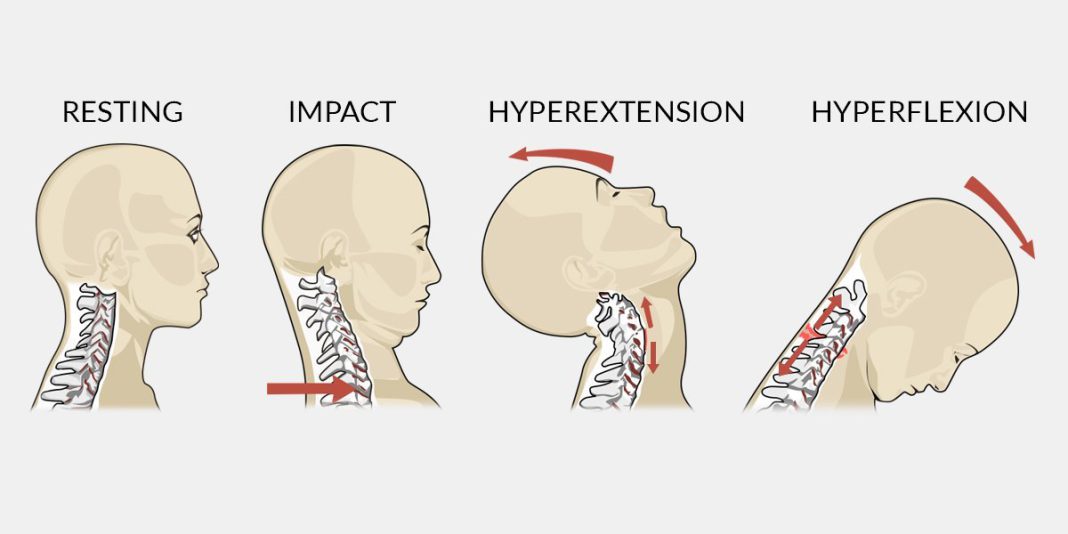okikiko.com – There are many symptoms of a neck injury. Pain in the neck or back can be a sign of a ruptured disc or pinched nerve. The pain in the neck can also be accompanied by a fever. Fortunately, there are many treatments for neck injuries. TriHealth Orthopedics & Sports Institute and Beacon Orthopedics & Sports Medicine can help you understand what is causing your symptoms and get you back on your feet as soon as possible.
Numbness or tingling in the limbs is a symptom of neck injury

The most common symptoms of a neck injury include numbness or tingling of the limbs. If you notice any of these symptoms, it is important to see a doctor. Most types of neck injuries can cause tingling or numbness in the limbs. However, only the most severe cases produce this type of pain. It is usually not life-threatening, and can be treated with non-surgical treatment.
In most cases, neck injuries are the result of trauma, such as a car accident or a fall. Other causes of neck pain include a physical assault, diving into shallow water, or accidents at work or in leisure activities. It is important to avoid trying to straighten the neck yourself if you feel it is in pain. If you feel any bleeding, apply direct pressure to the area and do not try to remove objects from the head or body.
It’s important to see a doctor for the correct diagnosis and treatment

If you experience any of these symptoms, you should consult a doctor. If the pain is numb or tingling in the limbs, you should contact your healthcare provider. In most cases, this symptom is caused by a more severe neck injury. In some cases, the pain may be more severe than whiplash. Nevertheless, it is important to see a doctor in order to get the correct diagnosis and treatment.
The most common cause of neck injuries is trauma. These accidents may occur as a result of car accidents, falls, physical assaults, and other kinds of accidents. In addition, people can develop injuries to their neck as a result of sports and recreational activities. If you experience any of these symptoms, you should seek medical attention immediately. If you experience any of these symptoms, contact your health care provider to get the best treatment for your specific condition.
The healthcare service will evaluate your symptoms

In the event of a contusion, symptoms include pain in the neck, headache, and muscle spasms. In addition to neck pain, you may also experience trouble breathing, bowel or bladder function problems, and other neurological effects. If you experience any of these symptoms, you should visit a medical professional immediately. Your health care provider will evaluate your symptoms and determine whether you need surgery. A fractured neck may involve fractured bones or a strained ligament.
The symptoms of a neck sprain are similar to those of other sprains. If you experience pain in your neck, you should consult a doctor immediately. If you have pain in the neck, you should consult a medical professional immediately. He or she will examine your neck to determine the cause of your injuries. Once you see a medical professional, you should seek treatment immediately. A surgeon will perform extensive tests to diagnose your condition and help you get the best treatment.
Neck injury is often the result of trauma

Your doctor will ask you if you are experiencing pain in your neck. A neck injury is often the result of trauma. It may be the result of a car accident, a fall, or a physical assault. It can also be caused by accidents in the workplace, sports, and leisure activities. In the first 48 hours following an injury, you should consult a physician to determine the cause of the pain. The health care provider will evaluate the pain and determine if you need surgery.
Some of the symptoms of a neck injury are vision changes, tingling in the arms, and pain in the neck. Some of the other symptoms of a neck injury are a stiff neck, swelling in the neck, and a headache. Some people may experience a fever and stiff neck. It is important to seek treatment right away to avoid a serious injury. In some cases, the pain can last for weeks or months.


